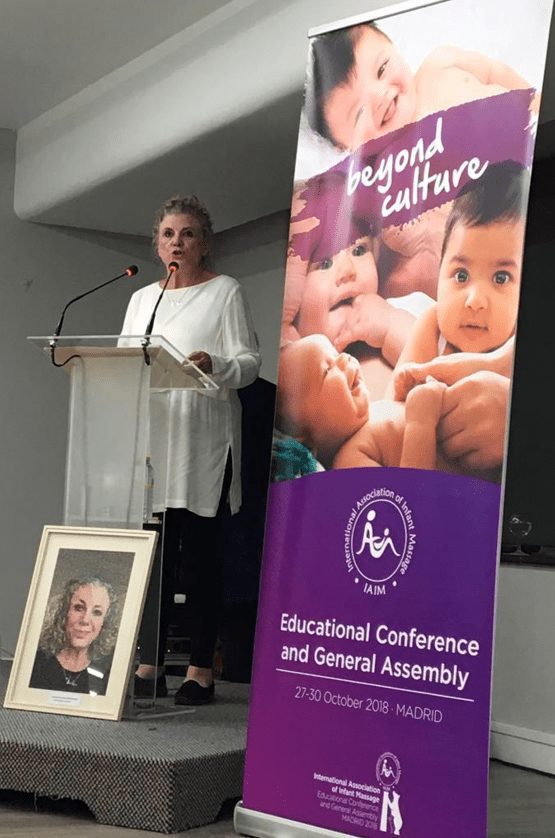Music therapist Claire Littlejohn gathers the sleeping baby girl from her incubator in Trident Medical Center’s Level II nursery, and they settle into a rocker. Iris Monroe Boyer arrived six weeks earlier than expected, and at nine days old, she weighs four pounds, two ounces. To help Iris adjust to stimulation, Littlejohn sings her a lullaby.
Accompanied by intern Julianne Innamorato on guitar, She stretches out the lyrics of “Peace Like a River.” As they transition to “You are My Sunshine,” Littlejohn unwraps the top of Iris’ blanket and massages her arms. Throughout the session, Littlejohn fine-tunes her approach based on her training and the newborn’s cues.
Iris responds well. Her heart rate drops from 165 to 145 beats a minute, she smiles twice and makes eye contact.
“If they are able to better handle stimulation, they can rest and relax and grow,” says Littlejohn. Research shows that music therapy helps premature infants tolerate stimulation, and that, in turn, helps stabilize heart and breathing rates, improve feedings, boost weight gain and shorten hospital stays.
Premature girls are discharged an average of 9.4 days sooner when exposed to music therapy with singing, according to a 2012 study published in the Journal of Neonatal Nursing. Add guitar and girls go home an average of 21 days sooner than they would without music therapy.
Boys, on the other hand, seem to prefer just singing, which leads them to leave the hospital an average of 16 days earlier. When the complexity of the guitar is added, most little boys’ gains aren’t as impressive.
Trident Health started its music therapy program a decade ago and is the only hospital system in the Charleston area to have a full-time music therapist. Littlejohn works with patients of all ages, using music to help alleviate pain, ease anxiety, reduce loneliness and encourage patients to express themselves.
Littlejohn is board certified in music therapy and has advanced certification to work with infants who have special needs. She helps babies who are at least 29-32 weeks of age, seeing them individually one to two times a week.
She only sings simple lullabies. As infants progress, she holds them and may add rocking, massage and guitar, always looking for signals from the baby of over-stimulation. “If they say it’s too much, we back off.”
Veteran pediatric nurse Margaret Pipkin says music therapy seems to help the premature infants adjust to noises, lights, handling and feedings. “Over the years, we’ve found more and more uses for it.”
Now 1½, Summerville twins Kate and Zach Pearson were born at 32 weeks into pregnancy. Kate stayed in Trident Medical Center’s nursery for three weeks, and Zach, born a little smaller at 3 pounds, 15 ounces, stayed for four weeks before joining her at home.
Their mom, Christy Pearson, says, “They started music therapy when they were a day or two old. You could tell it was very relaxing for them.”
It was also relaxing for her. She learned music therapy techniques from Littlejohn and even today finds singing can quickly calm her kids in tense situations. She suspects that music therapy helped them catch up in growth and development. “They are doing all the things they should be doing, and they’ve met those markers pretty consistently.”
